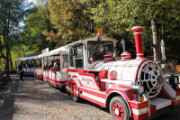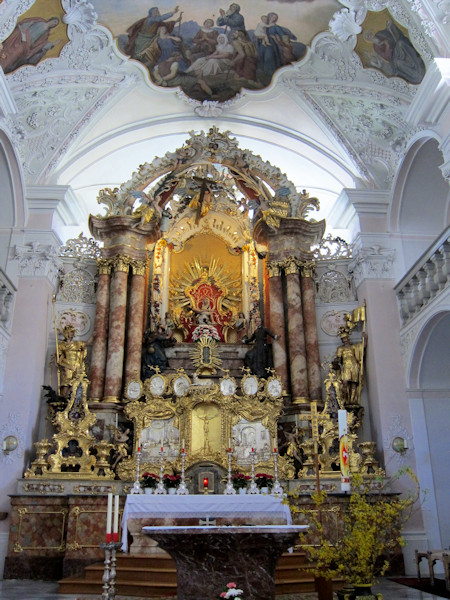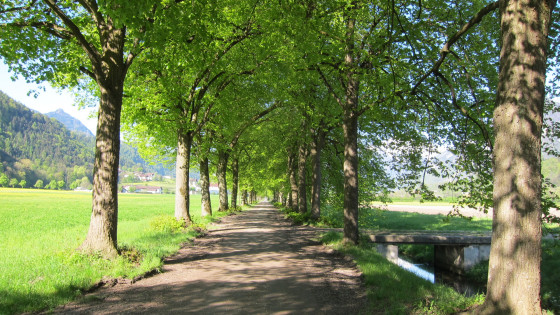
Shortly after Strass we walk through this long tree-lined promenade. We did not take the alternative path, which leads over the ruins of Rottburg.
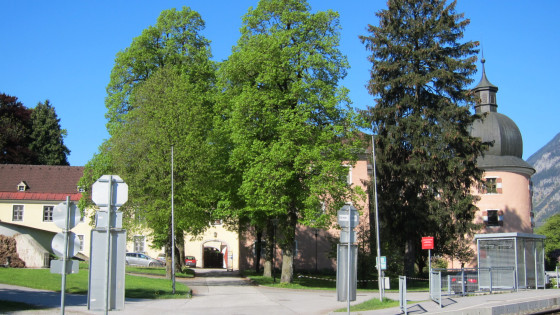
At the end of the promenade is the Rotholz Castle.
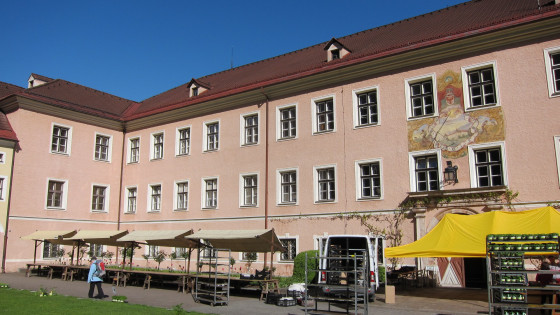
We went straight ahead through the castle courtyard.
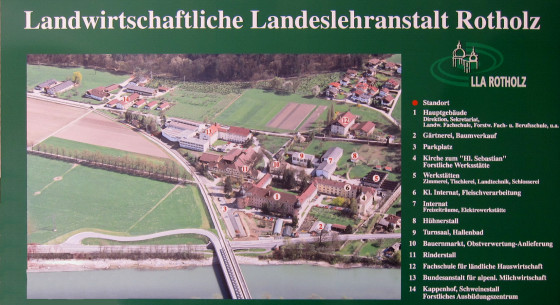
Schloss Rotholz was built from 1575 to 1585 as a hunting lodge with a zoo for Archduke Ferdinand II. From 1704 to 1706 the Counts of Tannenberg carried out a reconstruction. The castle remained in the possession of the Tannenberg family until 1848. From 1848 to 1860 the castle was in the possession of the sovereign, from 1860 to 1889 it belonged to the Bishop of Brixen, since 1889 it has been in the possession of the state of Tyrol.
Since 1879 the building is used as an agricultural school.
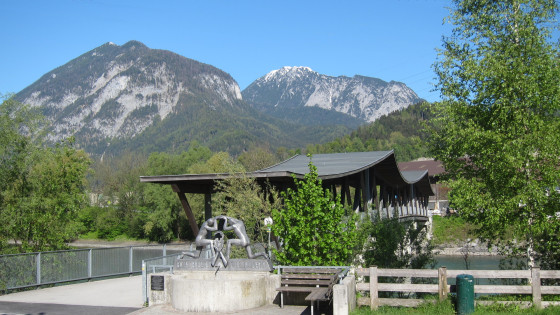
The Notburgabrücke (bridge) leads us across the Inn. It connects Rotholz with Jenbach at the place where legend has it that in 1313 the ox cart with the coffin of the holy Notburga moved from Rottenburg to Eben am Achensee across the Inn.
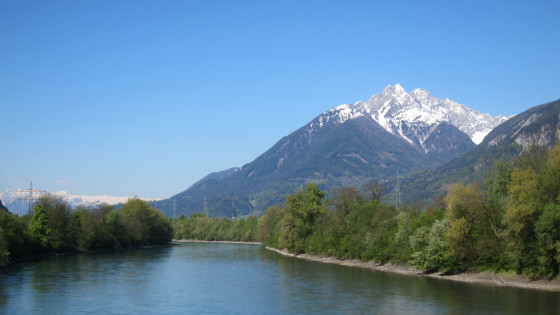
The Inn seen from the bridge.
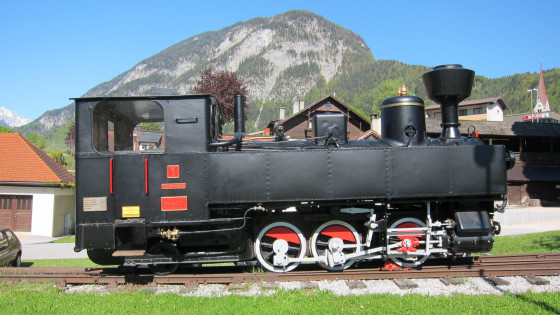
In Jenbach, at a traffic circle of the Achenseestrasse, you can admire this old steam engine of the Zillertalbahn.

The holy Nepomuk of Jenbach.
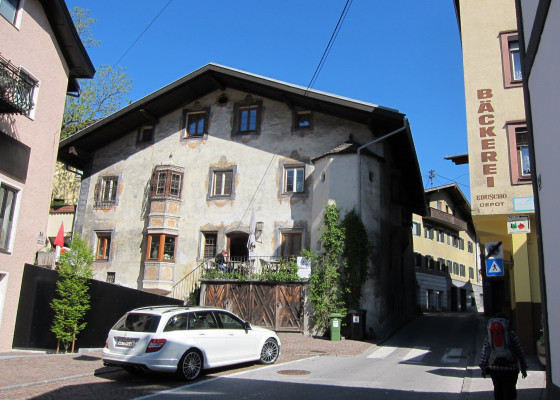
We walk on the Achenseestrasse through Jenbach.
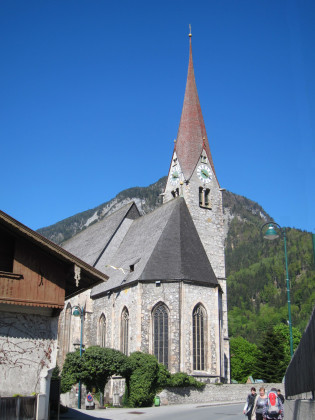
The parish church of St. Wolfgang and St. Leonhard in Jenbach.
Also here we find the holy Notburga.


A view into the baroque, originally gothic church. The altar is neo-gothic with baroque figures (St. Wolfgang and St. Leonhard).

The left side altar is a gothic altar of the Virgin Mary.
click on the small picture!

From Jenbach, the pilgrim trail continues along the Schloss-Tratzbergstrasse. Walking on the asphalt road with car traffic is not fun, but soon the signposted path branches off to the left and we are already walking on field paths (picture) parallel to the road.
We go back to the road for a short while before the path branches off to the castle Tratzberg.
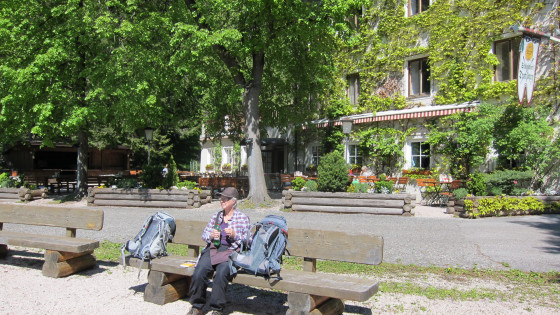
Via an tree-lined street we reach the Schlosswirt. From there the Tratzberg Express takes you to the castle.
After a short rest we climb up the narrow road on foot.
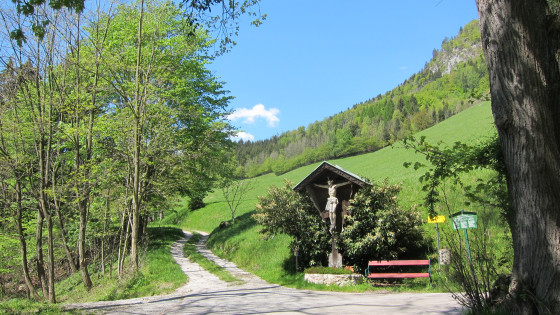
At the second bend, at this cross, the Way of St. James branches off to the left.
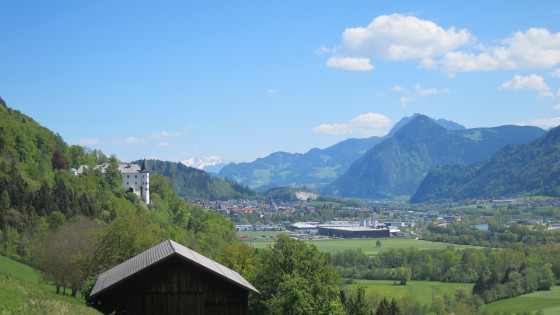
Soon we are at the height of the castle and can look back on the romantic complex.
The path climbs higher and higher and we are happy about the gained height meters, since the Georgenberg is our destination. But suddenly the path leads far downhill again and we have to tackle the ascent a second time.

Here it goes uphill again. Georgenberg is located at 900m altitude.

The view becomes more and more magnificent. Unfortunately the temperatures are getting higher and the water consumption is increasing.
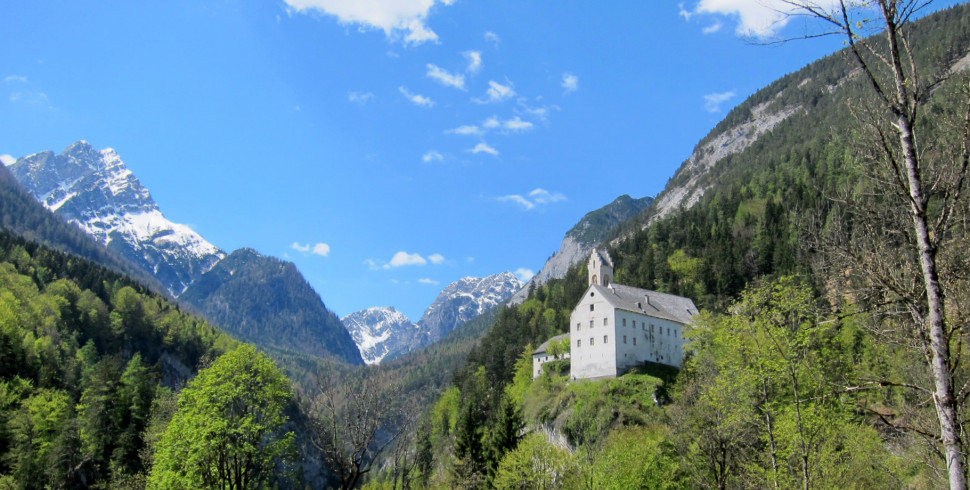
It is done! What a magnificent sight. The former Georgenberg monastery lies before us.
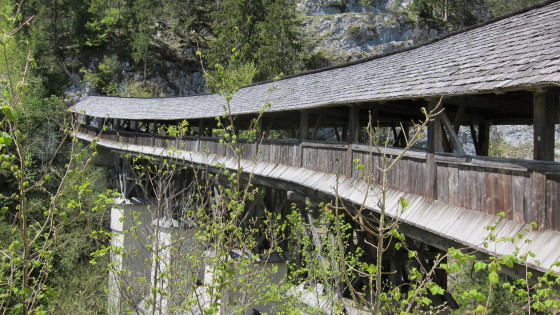
Over this "high bridge" we cross the Wolfsbachklamm. The bridge originally dates from the 16th century and was an architectural masterpiece at that time. It is the only path that leads to the monastery on the rocks without climbing.

The church of Georgenberg - it is dedicated to St. George and St. James the Elder - and a restaurant are left over from the 1000 year old Benedictine abbey. After several fires, the monastery was abandoned and the monks started to build a new monastery in the valley in 1706, the monastery Fiecht.
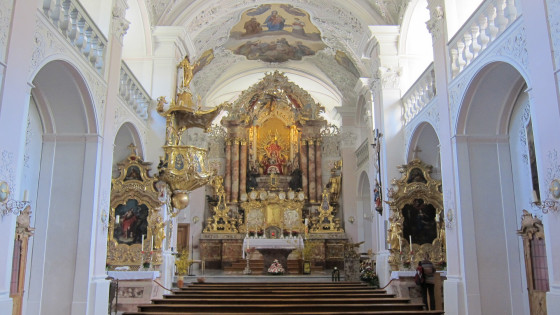
This is what it looks like in the church.
You can click on the altar to enlarge the view.

St. George is venerated (there is a relic of him here), the Blood Monstrance and the Pietà (at the altar).
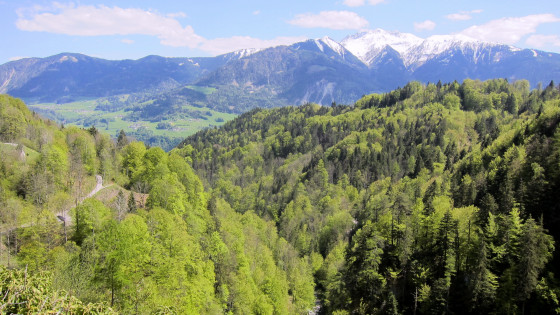
This is the view from the restaurant. In the background the snow-covered Kellerjoch (2344 m).
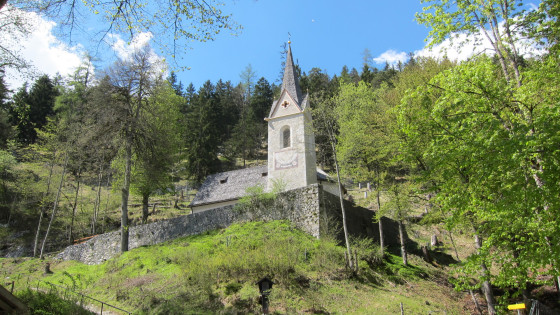
The Lindenkirche stands a little above the Georgenkirche.
The founder of Georgenberg Abbey, Rathold von Aiblig, is said to have attached a picture of the Virgin Mary, acquired in Santiago de Compostela, to a lime tree there.
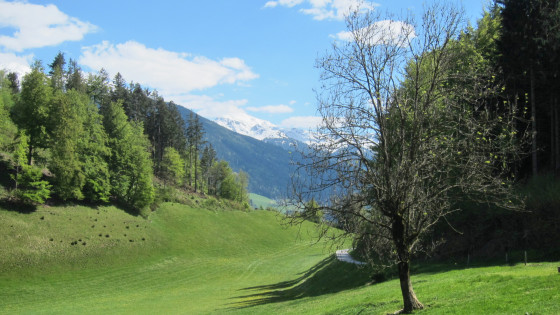
After a first descent, the Camino de Santiago climbs again after a wooden bridge. The signposted path then branches off to the right uphill to the "Vomperberg, Bauhof" and leads from there relatively steeply downhill.
We stayed on the road, which first as a gravel road, later on asphalt, led more gently to Fiecht.
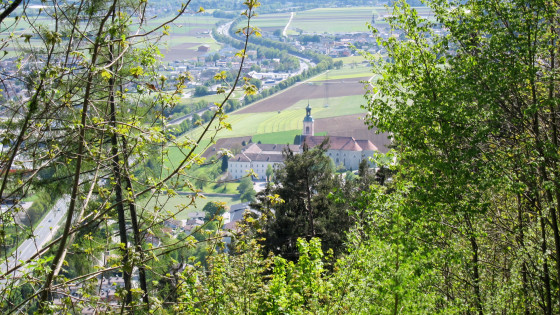
After about an hour's descent, the monastery reveals itself.
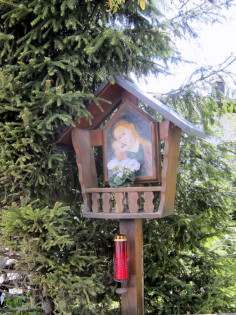
Shortly before the monastery, we walk past this Marterl (wayside shrine) with Mariahilf picture. We approach Innsbruck and the density of Mariahilf-pictures increases.
